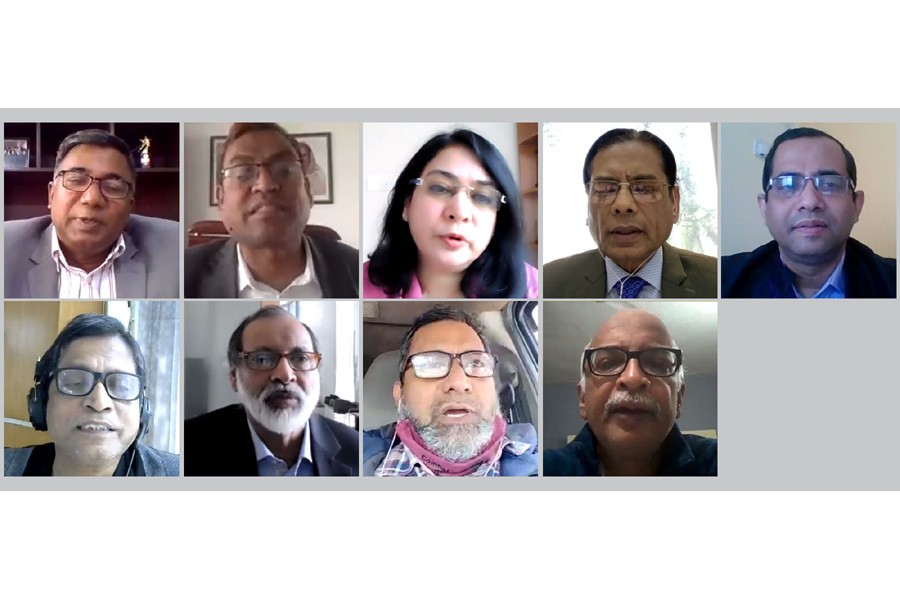The power sector of Bangladesh is increasingly facing challenges with regard to inefficiency, cost escalation, lack of cleaner energy-mix, poor quality of transmission and distribution and rising financial burden, says a press release.
Those challenges are likely to aggravate in the future and hence it is important to take lessons from that to ensure proper implementation of the eighth Five Year Plan (FYP).
These observations emerged at a virtual expert group discussion titled “Reflections of the Power Sector in the Upcoming 8thFive Year Plan: Perspectives on Strategies and Initiatives”, organised by the Centre for Policy Dialogue (CPD).
Speakers said that improvement of transmission and distribution of electricity should be a major focus of the power sector during eighth FYP period. Focus should also be given on strengthening the capacity of implementing renewable energy projects, and both traditional and non-traditional renewable energy projects should get priority in the upcoming policy document.
The discussion was held virtually on Thursday. CPD’s Executive Director Dr Fahmida Khatun shared the introductory remarks where she highlighted institutional reform in the power sector for developing a sustainable power and energy sector in the country.
At the virtual discussion session, CPD’s Research Director Dr Khondaker Golam Moazzem made the keynote presentation.
Dr Moazzem suggested that an alignment of the demand projection should be made by the upcoming PSMP 2021 with other policy documents will be highly important, and the energy mix which is highly biased towards fossil-fuel should be gradually rebalanced with setting up renewable energy based projects.
He also highlighted that eighth FYP should highlight appropriate mechanism to lessen the fiscal pressure, huge import payment and debt burden caused in case of different power sector related activities.
Mohammad Alauddin, chairman (additional secretary), Sustainable & Renewable Energy Development Authority (SREDA), Power Division, Ministry of Power, Energy and Mineral Resources, a panelist at the session stated that to move to renewable energy, relying only on solar energy would not be enough.
He suggested that more studies need to be conducted regarding opportunities of producing wind energy in Bangladesh. Echoing with CPD’s presentation, he put emphasis on institutional strengthening of the SREDA by increasing human resources.
Mohammad Hossain, director general, Power Cell, Power Division, Ministry of Power, Energy and Mineral Resources (MPEMR) was present as another panelist at the session. He remarked that the high reserve margin of generation is due to the low demand of power in the COVID-19 scenario. He said that the government is taking due measures in addressing rising cost, inefficiency and higher financial burden on the power sector.
Dr M Tamim, former special assistant to the Chief Advisor, professor at the Department of Petroleum and Mineral Resources Engineering, Bangladesh University of Engineering and Technology (BUET), Dr Ijaz Hossain, professor, Department of Chemical Engineering at BUET, Professor Dr M Shamsul Alam, Dean, Faculty of Engineering (FE), Daffodil International University, and Professor Chowdhury Md Shahriar Ahmed, assistant professor and director, Centre for Energy Research (CER) also joined the dialogue as panelists.
Concerns over generation surplus in the power sector was also raised by the panelists. The panelists also suggested focusing more on transmission and distribution of electricity in the coming days.
The virtual session was followed by a question and answer session with the journalists from the print and electronic media.
While moderating the session, CPD’s Distinguished Fellow, Professor Mustafizur Rahman emphasized that the power and energy sector has now moved into second generation of problems where challenges have moved from concerns from generation of electricity to pricing and energy mix issues. He ended the dialogue with a vote of thanks.


